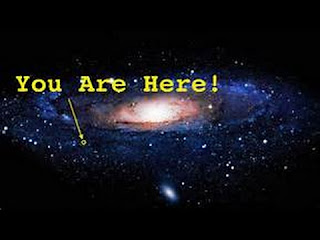What is Reality? The Syllogism of Wonder and Various Outcomes (Essay)
The Nature of RealityBy Lee J Keller
The Nature of RealityBy Lee J Keller
You know, I think that there are many things that as long as I go on living, (and some think I am ancient already), that defy explanation and seem to get more puzzling as time goes by. These are questions that seem to be based on observations of the state of things as they simply are, the state of things created by human foibles, and the state of things acquired by a forgotten history that supposedly encountered a smashing dialectic; whatever that means.
And never is this nature of disturbances plainer than the bafflement of cosmic questions that seem to be answered by nothingness (sunyata) at all. Unless you call silence nothingness. I have long thought about this, even as a young lad, and never got over such questions. Stop asking, the grammar school teachers said (they were teaching long division when they said that), the middle school teachers said hmmm (when they were teaching history), and the college professors shrugged (when they were teaching the philosophy of science).
All wisecracks aside, what joker designed this predicament? Consciousness in a tent? Embodied atoms and chemical reactions walking upright on two steppers with a cortex vicariously balanced on top, that cannot yet be fully emulated or understood by anything created by the things themselves? Evolutionary biology aside, the minute I woke up, I was saying WTF? All head mashing via the birth canal, aside. And that was before I contemplated anything after looking up at the night sky, which upon doing so, many questions followed.
Chaos ensued when the tenth-grade physics teacher thought they had it all figured out, that when first describing quantum physics completely smashed that, or when the chemistry professor talked about the Uncertainty Principle and how could we ever pinpoint the actual location (angle and momentum) of an electron in an orbital shell? But still there were atoms, and engineering equations, formulas and elements that could be classified and persisted enough to actually design things or make them work most of the time on this little ball that circled a sun (which is a star!) that was way out on one of the spiral arms of an extended galaxy that was only one or apparently billions of galaxies that float around (it seemed) with no end in sight or limits thereof?
It is plain to see that human ingenuity, like the universe, has no limits, and is increasing all the time and not without exponents either.
And like I’ve said a lot recently, these are merely problems of scale. More will be understood, I say when we understand that maybe we are like ants to the bigger things in a cosmic sense. I am not so sure I like that analogy, to be honest. But I understand it. If it is some scale we are at, then we are constantly transcending it; I hope; I think. Or as human predicaments create a lonely forlornness about our own existence or own demise; I hope I think. I hope we think. Before it is too late.
I am sure there might be a few distant worlds out there where someone else has thought these same thoughts or tried to think about it. A few ruins and monuments left in the dust of cosmic history, or better yet, a few advanced cultures that don’t ask these questions anymore. (In part because they have answered them, or learned like we are, they are simply stepping stones to the wonder that causes further development and understanding to occur).
Like some professors and philosophers have said, maybe there are just some things we should stop thinking about. In one sense it leads to madness, and in another sense, perhaps there is no answer to some of these questions that seem to disintegrate into chaos or paradox.
So maybe that is why these big questions don’t get answered. Problems of scale, madness, or paradoxes. I do not know. Yet maybe we should never stop asking.
So let us (some say) be confined to questions of science, and advancing technology, and to research, for these are after all questions that can be answered; and might just prove to be able to improve the human predicament. One cannot disintegrate into bitterness or give up. We have been given consciousness for a reason, haven’t we?
All nihilism aside, is there not one single ray of human hope? I do think that Plato had it right, in his Allegory of the Cave. That we try to make sense of what things are as they pass through our illuminated understanding and the world of representation (which may be limited in this state of affairs)—for even though things may be misinterpreted, eventually we will understand them and come up out of the cave into the light.
To me, this is not an unhopeful message. So, I will eat an ice cream cone, I will go for a Sunday drive, and I will still look up at the night sky with awe and wonder, and gratefulness that I have been given what I have; the ability to do so (to ask questions); and the ability to do something about it (try to get some answers). And the time to wonder.
And to me, this is a big part of just what reality is from the human perspective; the capacity to wonder about it. And despite how beautiful that all is; it is surpassed by the beauty of all there is out there—what we see gloriously revealed in the mind and the cosmos beyond.~~LJK

Comments